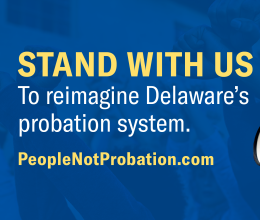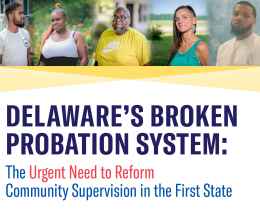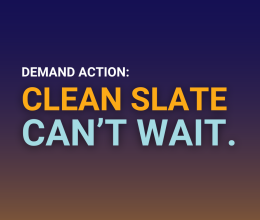It’s hard to understand America’s job market these days. Even though the unemployment rate is at 3.7% and the November 2022 jobs report indicated over 200,000 new jobs were added, there are still many Americans who can’t secure employment. Highly qualified applicants are being turned down time and time again.
The situation is worse for the formerly incarcerated. Discrimination due to felony convictions only further exacerbates the structural racism that makes it hard for members of minority communities to obtain gainful employment and enjoy the same workplace conditions as peers who are not justice impacted. The jobs available to the formerly incarcerated rarely offer security or upward mobility.
Everyone Needs to Work
Just like everyone else in America, those who were formerly incarcerated have to support themselves and their families, and they need a steady income to realize their hopes and dreams. Going to school, buying a home or a car, and taking a vacation all require financial resources. Nothing in life is free.
The standard terms of probation—the period following release from a correctional facility—also require individuals to find and maintain full-time employment. Probation officers know that there are many barriers to this for returning citizens. Ideally, those officers will refer individuals on their caseload to workforce development programs. But that’s not always the case, and if there is a change in employment status it must be reported immediately. Failing to maintain a steady job can result in a technical violation that can send a person back to prison.
What Was Hard Just Got Harder
Obstacles to employment explain part of the exceptionally high recidivism rates in Delaware. In some cases, employers are simply reluctant to hire individuals with felony convictions. But other factors driving re-incarceration rates are the unreasonable and inflexible reporting requirements for those on parole. These include being required to report to probation during regular work hours, excessive documentation of workplace activities, and frequent on-site visits by probation officials.
Numerous studies have found that supervision conditions are negatively correlated with overall employment success. It’s not surprising. If your employer has to excuse you from work once a week so that you can report for probation, you will not be able to perform as well as your colleagues. Additionally, if your probation officer is showing up to your workplace every other day, people are going to start to feel uncomfortable.
Similarly, the more excessive the reporting rules the more likely a person is to violate conditions of probation. Probation officers can require individuals to attend meetings and treatment programs at times that conflict with work schedules. It can be extremely difficult for a person on probation to balance competing priorities that result from court mandates. These conditions exacerbate an already challenging environment and increase the risk of recidivism.
Support, Not Surveillance
Probation officers and the individuals they are tasked with supervising would be best served by practices that are tailored to each person’s unique circumstances. Customizations are simple to implement and include practices like ensuring individuals have reporting times that do not conflict with their work schedules, or allowing virtual check-ins to be conducted from the workplace. They could also include conducting on-site visits in ways that allow for visual observation without interrupting the work environment.
Employment-related supervision serves a useful purpose; it helps ensure that returning citizens are reintegrating well into society and are earning a living lawfully. This can be accomplished in ways that do not complicate employer-employee relationships. What’s more, it can be accomplished in a way that ensures returning citizens feel supported as they navigate predictable workplace challenges, rather than hindered.
It's in everyone’s best interest to ensure returning citizens are successful in their reentry efforts. Their success improves public safety and strengthens our communities. Supporting formerly incarcerated people in their work environments is the key to bringing us closer to the Delaware we all want: one with less crime, fewer prisoners, higher employment rates, and happier Delawareans.
Check out these upcoming Smart Justice events on the need for probation reform in Delaware:
In a Whole New Way: Virtual Film Screening and Conversation with Jonathan Fisher
Tuesday, April 25, 6 pm
VIRTUAL via Zoom










